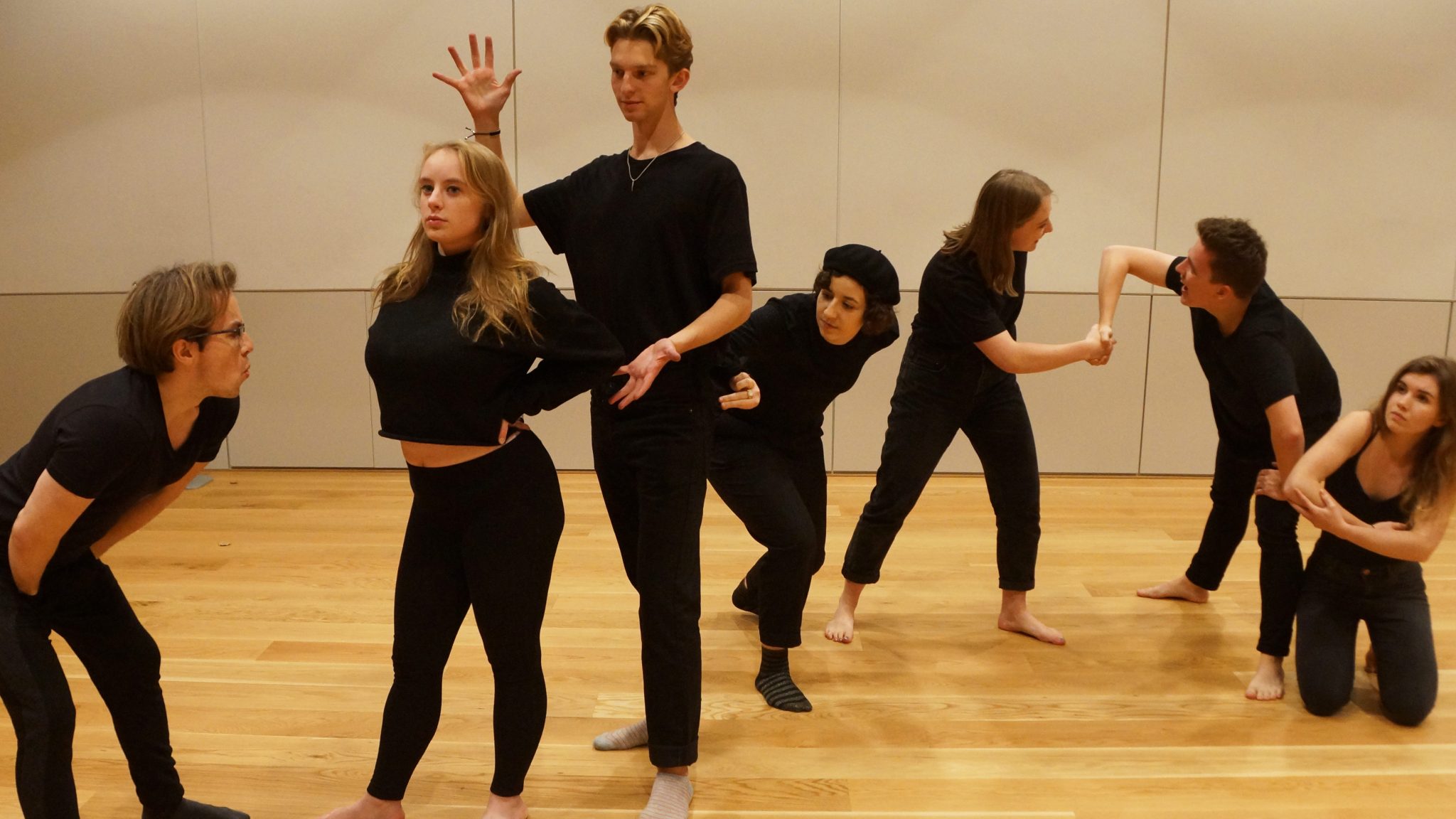Bertolt Brecht’s The Threepenny Opera tells a story of power, transgression, chaos and crime, set in a larger-than-life East London. Macheath – otherwise known as Mack the Knife, London’s most notorious criminal – ends up marrying Polly Peachum, the daughter of Jonathan Jeremiah Peachum. But, because Mack is the boss of all London beggars, Mr. Peachum tries to get him arrested and hung for marrying Polly. It’s a fast-paced and energetic plot with the addition of a wonderful 7-piece band, and its cast sing their hearts out.
For the few scenes I witness, director Georgie Botham first introduces ‘Barbara Song’, a piece sung by Polly (Emelye Moulton) that announces her marriage to Mack the Knife (Eoghan McNelis). Moulton is incredibly animated: “You must keep your head screwed on and insist on going slow,” she sings knowingly, her voice rising above the band as she is, quite literally, lifted up by the chorus. Unlike previous adaptations, Moulton’s Polly is charismatic and arresting, a woman who seems both vulnerable and worldly-wise – Botham says: this is as much Polly’s story as it is Mack’s. ‘Barbara Song’ finishes with a belting peal of saxophone and Mrs. Peachum running to shove Polly and Mack apart. It is an abrupt, unexpected end to the scene. In The Threepenny Opera, things happen before you can process them, leaving you running to catch up.
Ella Tournes and Marcus Knight-Adams, as Mrs. and Mr. Peachum/Vixen respectively, are a wonderfully sassy double-act, drawing attention to themselves even when sat silently onstage. Tournes is particularly dynamic, stomping around in heels, whilst Knight-Adams switches between aggressive and disdainful, smoking atmospherically behind McNeils as the latter duets with the prostitute Jenny (Amelia Holt) outside a brothel. Set against the unusually quiet piano, McNelis and Holt’s voices command attention: “You bastard,” Holt glares at him, showing Jenny to be another pleasingly strong female character. McNelis’s Macheath is an archetypal villain, but avoids being two-dimensional: even in the small selection of scenes from the preview, he manages to convey a curious sadness. His and Holt’s ‘Pimp’s Ballad’ is springy but uncompromising, and the injection of a sudden flute solo only makes it all the stranger.
Taking place in a mythic version of East London, everything about SLAM Theatre’s production is stylised and exaggerated; even the black and white set is designed to feel as though it is spilling off the stage. The ‘Second Threepenny Finale’, starring Macheath and Mrs Peachum, is an anthem that speaks to the core of the play: “What keeps mankind alive?” is the question asked over and over again, the chorus united behind the singers as everyone roars “Mankind is kept alive by bestial acts!”. This is not your classical musical. Whilst it is not moralising, the themes speak to socialism and poverty, intending to entertain but also unsettle. As Botham explains: it is about risk, with the cast looking to provoke a reaction and explore the dangers of losing control. As the first production of Simon Stephens’s adaptation since the National’s in 2016, SLAM Theatre have an opportunity to re-interpret and re-create, and their Threepenny Opera promises to be exhilarating.



